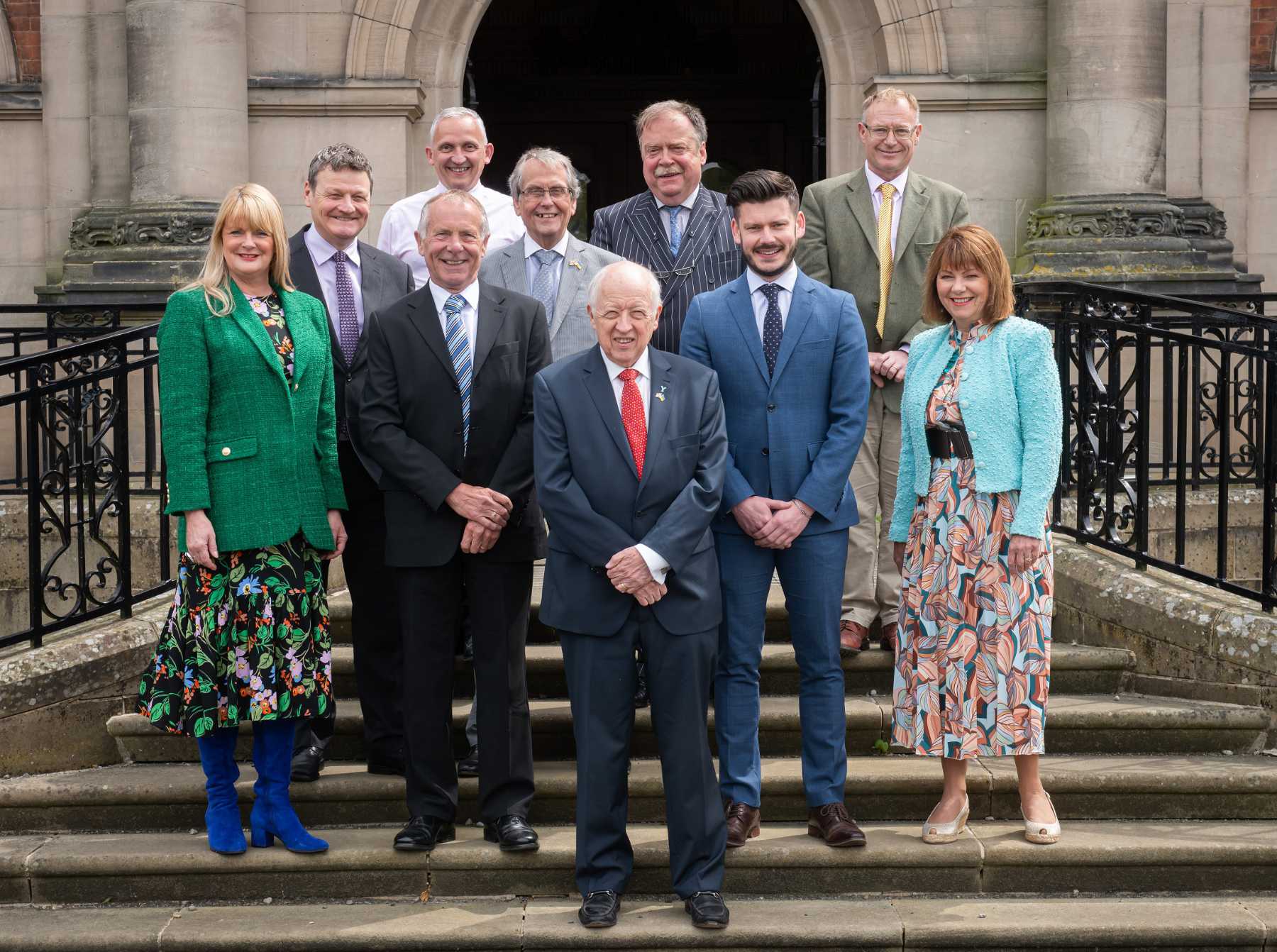A unified approach to ensuring major projects across North Yorkshire are employing taxpayers’ money effectively in the run-up to a wide-ranging overhaul of local democracy has been put in place.
Senior councillors on North Yorkshire County Council have today given the go-ahead to work closely with colleagues at the county’s seven district authorities to monitor major financial decisions and ensure leading schemes become a reality.
All eight councils will merge to create a new unitary authority from 1 April 2023 in the biggest shake-up of local government in North Yorkshire for nearly half-a-century.
The decision by the county council’s executive to liaise with district authorities to keep a check on major spending across North Yorkshire has been heralded as a vital move to provide a carefully co-ordinated approach to the shift to a single over-arching authority and ensure adequate funds are available from the spring of next year.
District councils will continue to operate and make decisions for major schemes ranging from the renovations of leisure centres to regeneration schemes under the Government’s Towns Fund, which is providing £3.6 billion nationally as part of Prime Minister Boris Johnson’s drive to level up the country’s economy.
The leader of North Yorkshire County Council, Cllr Carl Les, said:
The need to keep a close check on the public’s finances is obviously key in local government, and this is even more important as we move towards the new unitary authority.
We have already been in a close dialogue with our colleagues in the district councils who are adopting a very reasonable approach, and this is simply about ensuring that there is a seamless and effective transition from eight councils to one.
There is a vested interest for all of us to work closely together over the next 10 months. The councillors who have been elected to North Yorkshire County Council will continue representing the public when the new authority launches, so this is a key decision to ensure that we begin the new era on a stable financial footing.
Richard Cooper, Leader of Harrogate Borough Council said:
These changes have been known about since the start of the local government review process. This is not new information and indeed is welcome as it means the teams at North Yorkshire County Council and Harrogate Borough Council will work closely together this year as we head to the formation of the new single council for our area in April 2023.
The Secretary of State for Levelling Up, Michael Gove, has issued a direction which gives the county council’s executive the power to halt any relevant financial decision which could be of detriment to the new authority.
However, the executive has today approved a far wider remit for the district councils’ decision-making process, rather than confining it to Mr Gove’s direction under Section 24 of the Local Government and Public Involvement in Health Act of 2007.
The legislation restricts district councils from entering into revenue contracts and disposals of land in excess of £100,000 or “capital contracts” exceeding £1m without the consent of the county council’s executive.
The county council has confirmed that sanctions for not complying with the direction would be severe, but senior officers are confident that a close working relationship with district authorities will ensure a smooth transition to the new structure of local government in North Yorkshire.
The county council’s corporate director of strategic resources, Gary Fielding, said:
We have a good working relationship with the district councils in North Yorkshire, and as such we have put our confidence in that partnership. As a result, the district councils have far greater control over their decision-making than would have been available under the Section 24 direction as issued by the Government.
That direction from the Government is there to help map out the way forward for all authorities. It does provide an added element of protection for the taxpayers, and as such it is a sensible action to ensure that the new council is financially sound when it launches next year.
The executive also formally approved an implementation plan to secure a smooth transition to the new North Yorkshire Council.
A total of 15 areas have been identified to help shape the services which will be overseen by the new authority, and range from locality, corporate governance and finance to human resources, economic development, housing and culture, leisure and sport.
The implementation plan had previously been agreed in March between officials from the county and district councils, but the executive has now approved the blueprint after assuming political governance of the transition to the new unitary authority.
The move to create the new authority, which will see the county council merged with the existing seven district councils, represents the biggest shake-up in local government in North Yorkshire since 1974, when the current two-tier structure was introduced.
The introduction of the unitary authority is necessary to secure a long-awaited devolution deal for North Yorkshire to shift a raft of decision-making and spending powers away from Westminster to the county.
The Government has stipulated that a key requirement for any devolution deal for North Yorkshire is for the two-tier system of local government, with the county council and seven district councils, to be replaced by a single unitary authority. City of York Council will continue as a unitary authority to run in tandem with the new North Yorkshire Council.
The deal to hand over decision-making powers and tens of millions of pounds in funding to political leaders in York and North Yorkshire is currently being negotiated with the Government, with an announcement on an offer for devolution expected this summer before public consultations are staged later in the year.
The cost of establishing the new council is expected to be in the region of £38m, although the savings brought about by streamlining local democracy are expected to reach £252m over the first five years of the authority.
District and borough councils will remain until April 1, 2023, and the councillors serving on those local authorities will continue in their roles until that date.







